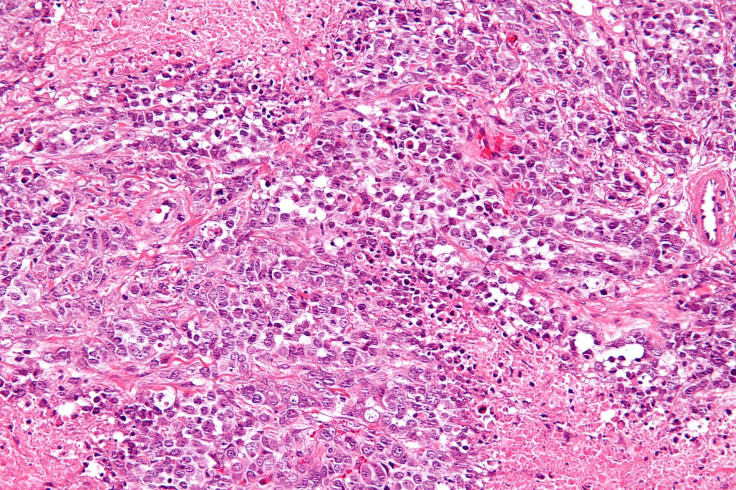Adaptimmune Launches Clinical Trial For Ovarian Cancer, Using Immune Cells To Kill Tumors; How To Get Enrolled

One of the promises of science in the 21st century has been new forms of cancer treatment. Typical chemotherapy and radiation treatments attempt to kill fast-growing cancer cells before they kill the patient. But new therapies like Herceptin, an antibody that binds to the Her-2 receptor on the surface of cancer cells and causes the immune system to attack them, may be a new source of hope. But not all cancer targets are on the surface of cells, and they are also inaccessible and invisible to the immune system. Nevertheless, a new technique aims to arm T cells of the immune system with their own receptors that can recognize and cause the death of cancer cells.
Now, Adaptimmune, a small biotechnology company, is testing this new method. The early stage clinical trials will first assess safety and then determine if it actually help patients with ovarian cancer. Roswell Park Cancer Institute (RPCI) in Buffalo, N.Y., and City of Hope (COH) in Duarte, Calif., will be the two medical centers where the PhaseI/II clinical will begin. The company has a lisense from technology owned by Immunocore, a company which makes a different type of T-cell receptor technology that has just inked deals with large companies like Genetech and GlaxoSmithKline.
Scientists at the company have pre-screened T-cell receptors, which are specific for cancer specific antigens, or proteins, NYESO-1 and LAGE-1. The gene in the form of DNA for these receptors will be transferred into T cells that have been purified from the blood of patients with cancer and then re-injected back into the patient. The technology was developed by Carl June, M.D., and Bruce Levine, Ph.D., of the Perelman School of Medicine at the University of Pennsylvania. The processing of the cells will take place at the biotechnology company Progenitor Cell Therapy in Allendale, N.J.
"T cells are the foot soldiers of the human immune system, attacking invaders like bacteria, viruses and cancer," said Kunle Odunsi, M.D., Ph.D., the study's author and director of RPCI's Center for Immunotherapy, in a press release. "We believe that by modifying the T cells so that they express a high-affinity receptor for a protein that is a known cancer/testis (CT) antigen, we can fully exploit their ability as cancer killers."
The patients in the study will have already been treated with chemotherapy and seen to be resistant or have received two different chemotherapeutic treatments with no effect. This past year, studies using this same technology in sarcoma and myeloma patients have shown results.
"We are enormously pleased to be working with world leaders in immunotherapy for cancer," said James Noble, CEO of Adaptimmune. "Ovarian cancer is an important clinical indication with which to evaluate our CT antigen specific TCRs because of the dismal prognosis of current standard care for advanced ovarian cancer, so the effects of the T cell immunotherapy can be rapidly assessed."
Ovarian cancer is the fourth leading cause of cancer in women and takes the lives of 15,000 of the 22,000 newly diagnosed women yearly in the U.S. Standard chemotherapy only results in a five-year survival rate of 30 percent , so there is a significant need for a treatment with better results.
Information on the ovarian cancer clinical trial and enrollment can be found here, and information about enrolling in clinical trials using the same technology for sarcoma can be found here, melanoma here, and multiple myeloma here.



























